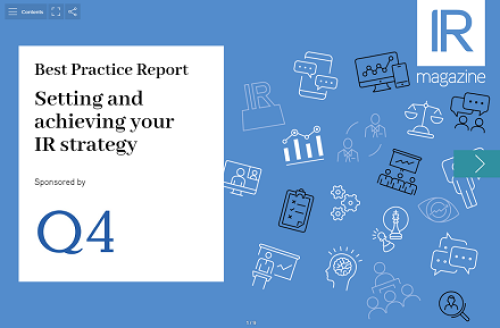Companies should think carefully before offloading their shareholder bases; they can be extremely valuable, not least because of their loyalty
Newly renamed UK mobile phone giant O2 (formerly mmO2) recently announced that 833,000 of its smaller shareholders took up the offer to cash in their holdings at a premium to the market price. For O2, the problem was that 63 percent of its shareholders owned just 3.5 percent of the company’s total market value. The cost of servicing these shareholders is significant: for shareholders with fewer than 1,000 shares, it cost more to post their dividend checks than the value of the dividend.
You need to register to access 3 free deep dive articles per month. To continue reading please register or login below..
- Unlimited deep dives
- Data-driven research around key topics
- Buy-side insights
- Benchmarking reports
From
$1495










